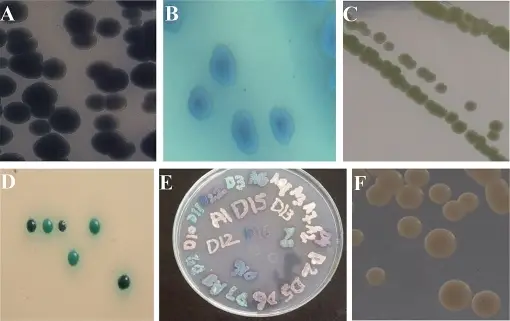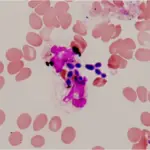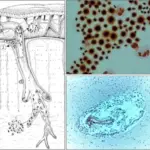Candidiasis fungal Infection is caused by a yeast, a type of fungus called candida.
What is the Pathology of Candidiasis Fungal Infection?
The pathology of candidiasis fungal infection is:
-Etiology: The cause of candidiasis fungal infection is yeast, a type of fungus called Candida.
-Genes involved: Not applicable.
-Pathogenesis: The sequence of events that lead to candidiasis fungal infection are: the yeast cells adhere to mucosal tissue followed by hyphal invasion causing extensive damage in the tissues.
-Morphology: The morphology associated with candidiasis fungal infection shows small, oval findings.
-Histology: The histology associated with candidiasis fungal infection shows predominantly spongiotic changes in the epidermis with irregular acanthosis, mild spongiosis and inflammatory changes
How does Candidiasis Fungal Infection Present?
Patients with candidiasis fungal infection typically are all genders of all ages. The symptoms, features, and clinical findings associated with candidiasis fungal infection include digestive iIssues, sinus infections, joint pain, oral thrush, tiredness and fatigue.
How is Candidiasis Fungal Infection Diagnosed?
Candidiasis fungal infection is diagnosed by blood sample, or tissue sample.
How is Candidiasis Fungal Infection Treated?
Candidiasis fungal infection is treated by fluconazole, an antifungal medication.
What is the Prognosis of Candidiasis Fungal Infection?
The prognosis of candidiasis fungal infection is good, uncontrolled infections can lead to life-threatening problems especially in those with weakened immune systems.



